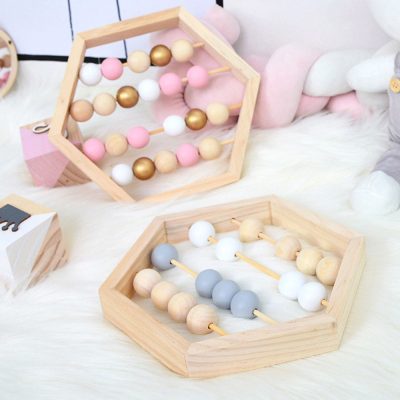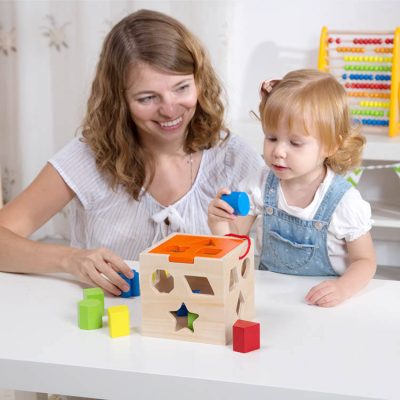Generally speaking, babies around the age of two or three have a certain understanding of the concept of graphics, and also have certain operating skills. At this time, they can start teaching babies to play jigsaw puzzles. However, it should be noted that when choosing a puzzle for a baby of this age, be sure to choose a simple pattern, larger pieces, fewer numbers, and a harder texture. When the baby plays the puzzle for the first time, there must be an adult guide, because the baby is young, has weak observation and analysis ability, and does not have much patience. Parents should remind the baby how to observe the pattern features, help the baby to turn the block into an appropriate angle, and let the baby discover the relationship. If the baby can’t complete the whole puzzle at one time, parents should assist in completing the remaining part and set an example for the baby, so that the baby can do things from beginning to end, not to give up halfway, but also to let the baby enjoy the fun of success. This will give your baby the confidence and interest to challenge harder puzzles.
In fact, jigsaw puzzles are a good brain development activity for babies:
1. Exercise your baby’s listening, speaking and reading abilities. While playing the jigsaw puzzles, the children understood the jigsaw puzzle method from the instructions, and fully exercised their listening and speaking skills when playing with their parents or other children.
2. Exercise your baby’s problem-solving ability. Education experts believe that hands-on ability begins with games that children are interested in. If children from 3 to 8 years old are not trained, they will miss this best period. Children who have not been trained will not be as good in hands-on ability when they grow up. Children who get trained. Even if the child has learned a lot or scored high in the test, if the hands-on ability is poor, it will be very difficult and slim for him to succeed. In the process of jigsaw puzzles, in addition to the exercise of the baby’s upper arm muscles and hand-eye coordination, the most important thing is that the jigsaw puzzle requires the baby to solve the problem by himself and finally succeed in the continuous attempts and failures. This process gives confidence to the baby The development of heart and ability is a valuable experience.
3. Puzzles can improve the baby’s observation ability. Observation is an important way for people to perceive the outside world and acquire knowledge. For children, finding the specific location of each piece of the puzzle requires careful observation. The diversity of puzzles can also allow babies to recognize colors, letters, numbers, shapes, and understand the relationship between the whole and the parts, and unconsciously exercise their mathematical ability.
4. Learn to work as a team. Babies work with parents or other children to make big puzzles, and each person is responsible for a part of it, cultivating the baby’s teamwork spirit. In the process of cooperation, babies can also learn how to get along and communicate with others, learn to obey orders, learn to put forward their own opinions, and understand the importance of working together. Good interpersonal relationships and teamwork are the cornerstones of a person’s respect and success.
5. Cultivate the habit of organizing things in your baby. Before each puzzle, let the baby find it out and put it away; after each puzzle, ask the baby to put it in a fixed position, so that the baby can develop a good habit of doing things from beginning to end.








